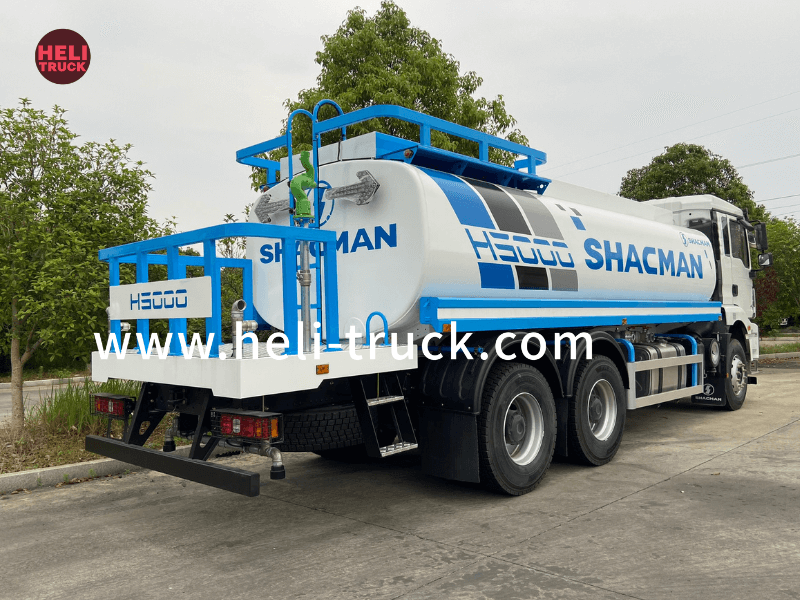Introduction:
As urban areas continue to grow, so does the challenge of managing the increasing amount of waste generated by these cities. In this article, we will explore the role of garbage compactor trucks in revolutionizing urban waste management. These specialized vehicles play a crucial role in collecting and compacting waste efficiently, thereby reducing the environmental impact, improving public health, and creating sustainable cities. This article aims to provide a comprehensive overview of garbage compactor trucks, their benefits, and their significance in the modern urban waste management landscape.
1. The Need for Effective Waste Management in Urban Areas:
Rapid urbanization has led to a significant increase in waste generation. Improper waste management can result in various environmental, health, and social problems, such as pollution, spread of diseases, and degradation of natural resources. To address these challenges, cities need to adopt efficient waste management systems that can handle the ever-growing volume of waste. Garbage compactor trucks have emerged as an essential component of such systems.
2. Understanding Garbage Compactor Trucks:
Garbage compactor trucks, also known as waste compactors or refuse compactors, are specialized vehicles designed to collect, compress, and transport waste materials efficiently. These trucks are equipped with a compaction mechanism that compacts the collected waste, reducing its volume and maximizing the capacity of the truck. The compacted waste is then transported to designated disposal sites, such as landfills or recycling centers.
3. Types of Garbage Compactor Trucks:
There are various types of garbage compactor trucks, each designed to cater to different waste management needs. Some common types include:
a. Rear Loader Compactor Trucks: These trucks have a rear-loading mechanism, allowing waste collectors to load waste into the compaction chamber from the rear of the vehicle. They are commonly used for residential waste collection.
b. Front Loader Compactor Trucks: These trucks are equipped with a front-loading mechanism, allowing waste collectors to load waste from specially designed bins or containers. They are often used in commercial and industrial areas.
c. Side Loader Compactor Trucks: These trucks have a side-loading mechanism and are commonly used for collecting waste from narrow streets or alleys where rear or front loading may not be feasible.
4. Benefits of Garbage Compactor Trucks:
Garbage compactor trucks offer several advantages over traditional waste collection methods. Some key benefits include:
a. Increased Efficiency: The compaction mechanism allows these trucks to collect and transport larger volumes of waste, reducing the number of trips required and improving overall efficiency.
b. Space Optimization: By compacting the waste, garbage compactor trucks optimize the available space, reducing the need for additional collection vehicles and minimizing traffic congestion.
c. Improved Hygiene and Public Health: Compacting waste reduces the risk of spillage, odors, and the attraction of pests, improving the overall hygiene and public health in urban areas.
d. Environmental Sustainability: By reducing the volume of waste, garbage compactor trucks help conserve landfill space and minimize the environmental impact of waste disposal.
e. Cost-effectiveness: The increased efficiency and optimized waste collection process provided by garbage compactor trucks result in cost savings for waste management authorities.
5. Challenges and Considerations:
While garbage compactor trucks offer numerous benefits, there are also some challenges and considerations to take into account. These include:
a. Proper Maintenance: Regular maintenance and inspection of garbage compactor trucks are crucial to ensure their optimal performance and prevent breakdowns, which could lead to service disruptions.

b. Adequate Infrastructure: Cities need to invest in proper waste management infrastructure, such as waste transfer stations, to allow for the efficient operation of garbage compactor trucks.
c. Waste Segregation: To maximize the efficiency of garbage compactor trucks, waste segregation at the source is essential. Proper waste segregation practices educate citizens and ensure that recyclable and non-recyclable waste is separated, enabling effective recycling and waste diversion.
6. Innovations and Future Trends:
In recent years, the waste management industry has witnessed various innovations to further enhance the efficiency and sustainability of garbage compactor trucks. These include the integration of smart technologies for route optimization, real-time monitoring of waste collection, and automated waste segregation mechanisms. The future of garbage compactor trucks lies in embracing these technological advancements to create smarter and more sustainable waste management systems.
work truck for sale :
Garbage compactor trucks have become an integral part of urban waste management, offering numerous benefits in terms of efficiency, hygiene, sustainability, and cost-effectiveness. As cities continue to grow, it is crucial to invest in these specialized vehicles and associated infrastructure to ensure the effective and sustainable management of waste. By doing so, urban areas can significantly reduce their environmental footprint, improve public health, and create cleaner, more livable cities for future generations.
